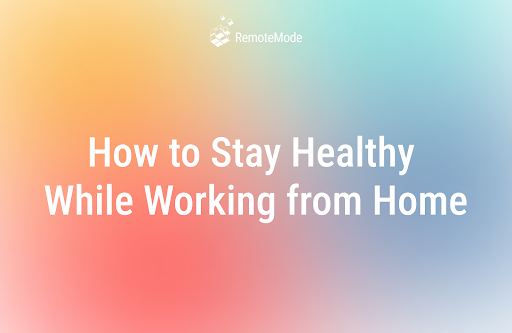What to Do When You Get a Job Offer

You began your online career retraining programming with one goal in mind—get a job. More specifically, you wanted to get a job in the field you studied, so that you would not just get a job but launch a career. Your RemoteMode career preparation program provided you not just with technical knowledge and skills, but also gave you professional career guidance, enabled you to complete real-life projects to build your portfolio, helped you create a social media network to create a professional community, polished your resume to attract hiring managers, showed you how to search for potential jobs, and rehearsed you for your first job interview.
Now, all of that preparation has paid off. You aced the initial HR interview. You slayed the second interview with the hiring manager. You crushed the evaluation of your technical skills. The company is ready to make you an offer and bring you onboard as their newest and most promising new hire.
So, now what happens? If this is your first big-time professional job, you need to know the steps in negotiating the terms of the offer, evaluating the fit of the job to your goals and interests, and how to communicate with the hiring company to prove to them that they have made the right decision in hiring you. Below are several suggestions for transitioning from job seeker to employee.
The job offer
You first need to be familiar with the nature of a job offer. A verbal offer of employment is a nice gesture and may legitimately represent the hiring manager’s desire to bring you into the company, but it is not what you need to start work. You should receive a written job offer that includes the following information:
- Terms and conditions of employment
- The role or position you will fill
- A job description, including duties and responsibilities
- Salary
- Benefits (health insurance, 401K or retirement plan, etc.)
- Bonus structure (if applicable)
- Time-off and leave policy and accrual rate
- Expected work hours, schedule or shift
- Reporting manager's name and title
- Start date
- Duration of employment or contract period
- Location(s) of work
Until you have a written offer, you do not have the job, regardless of the handshake and the best intentions of the manager.
The offer may come in the form of an email or as a paper document through snail mail. It should include instructions on how and when the employer expects a reply. If you do not respond with the stated period of time, the company will withdraw the job offer.
Acknowledge receipt of the offer
As soon as possible after receiving the formal job offer, let the manager know you have received the offer. You are not necessarily accepting the offer, but you want the company to know that you have the offer in hand and are considering it. Let them know you are excited about the prospects of working for them, and you are grateful for the opportunity to be considered for the position. Start building a positive relationship with the company. Tell them when you plan to respond to the offer itself. You owe them the courtesy of knowing when to expect your answer, so they don’t simply sit and wonder if you’ll ever respond. They may want to notify other candidates of when they can expect the employer’s final decision. You know what it is like to play the waiting game. Don’t leave a whole chain of people dangling.
Evaluate the offer
Don’t look just at the salary. A big number might impress you, but money is not all there is to the job. Know to whom you will report. Hopefully it is someone who interviewed you. If not, you may want to ask for an opportunity for a short phone call or visit with your direct supervisor before accepting the offer.
Review the benefits carefully. Employment benefits are often as important as the salary. Medical insurance is a huge part of your compensation package. A big salary accompanied by poor (or no) group medical insurance may not be as valuable to you as a little less cash and a healthier insurance plan. Consider the PTO (paid time off) policy. Will you get standard holidays and a paid vacation? If so, how much vacation time, and how long do you have to work to be able to use it? Some would rather have more free time in exchange for a little less take-home pay each week. Or maybe you simply want money, and you don’t care about time off. It depends on your priorities and your lifestyle.
Read carefully the job description. Is the job the company is offering the job you think you are signing up for? Do the requirements and duties match and stretch your knowledge and skills? If not, does the employer offer additional paid training to get you up to speed? Be wary of extraordinary expectations. If you have entry-level skills, but the job offer describes a senior-level employee, you may be setting up yourself and the company for failure.
Take time to compare the offered salary to the general market. Many online resources can tell you the range and average salary for your prospective job role and experience. Is the company planning to pay you at the top end of the range? If so, the salary may look great today, but you may have no head room for a raise in the near future. If you are coming in at the lower end of the scale, that may not be a bad thing. You will have opportunities for raises and promotions. If the offered salary is substantially below average, however, beware that the company may be a sweatshop that burns up cheap labor and brings in fresh recruits as soon as the front line is exhausted.
Consider negotiating
A job offer, like any contract, is subject to negotiation. The company is effectively attempting to buy your services as an employee. As the seller, you do not necessarily have to accept the first offer. After evaluating the details of the offer, if the job appeals to you, you may want to respond with a counter-offer.
Almost every aspect of employment is on the table for discussion. Consider what would make the offer stronger in your favor, but don’t be ridiculous. When you sell a car, you don’t ask twice the retail value. Nobody will take you seriously. So, don’t ask the employer to double the salary or give you three months of PTO.
Consider not only the individual terms of the offer but the balance of the terms. As mentioned above, look at the balance of salary and benefits. The job may fit your goals better if you could take a little higher salary in exchange for forgoing medical benefits. Or perhaps you would prefer a clause that allows you to take unused annual leave as cash rather than roll it over into the next year’s accrual.
You may have issues with the job description itself. You may want more responsibility, or you may want a commitment to provide training to add to your skills to be able to meet the full scope of the job.
Not everything may be negotiable. Some aspects of your employment may be determined by strict company policies, and the hiring manager has no discretionary abilities to alter those policies. Hopefully, the non-negotiable terms are not deal breakers for you, but if they are, you may have to make a hard decision.
If you want to respond with a counter-offer, put it in writing. Send the counter-offer in the same format as you received the original offer, i.e., either as an email or as a paper letter. Be clear and specific. It would be helpful to explain the rationale for your counter suggestions. If you are reasonable in your requests, you have valid reasons for the desired changes, and the hiring manager is in a position to make concessions, you may receive a favorable response. If the employer accepts your counter, make sure you live up to every expectation of the company. They have gone the extra mile to bring you onboard, and you do not want to disappoint them.
Accept or decline in writing
Whether you decide to accept or decline the offer, put your final response in writing. If you accept the offer, be enthusiastic, but keep it professional. Pasting smiling emojis and high fives in your letter is not a good idea. But let the company know your appreciation for the opportunity to join their team and contribute to the company’s success.
Not every job, however, is a good fit for you. Don’t be afraid to decline an offer that does not meet your needs and expectations—even if it’s the first offer you have ever received and you are afraid you’ll never get another one. The reality is, if you were good enough to get one job offer, you are good enough to get another. Try not to be overly anxious. Don’t settle for something you don’t truly want when the job you really want may be just around the corner. Keep turning corners.
Final Thoughts
You’ve received an offer from the awesome company with which you interviewed. You sent a polite and grateful acknowledgment. You’ve considered the terms of the offer, and it meets your needs. You’ve written an upbeat response that expresses your excitement at the opportunity to become part of your new employer’s team.
The company’s HR department should send you a statement of agreement to enter into employment. You sign and return the agreement. You celebrate! Woohoo! And now, you just wait for your start date, right?
Nope. This is the perfect time to review and hone your skills. If you trained with RemoteMode, you have access to all your training materials and your projects in the Virtual Lab. Set aside some time to refresh your memory. Make sure what you have learned is cemented in your brain. Revisit your Virtual Lab projects to polish and improve them. Keep everything you have just learned fresh, so that when you hit the keyboard on your first day on the job, you know what you are doing. Nothing is more appealing in a new employee than justifiable confidence.
Are you ready to make the leap from your current life to your dream life? Do you want to pivot into a remote work career with a fabulous future and a desirable lifestyle? RemoteMode’s career preparation program is your ticket to the future. Contact a RemoteMode career advisor today to learn how quickly you can make your dreams come true.
Take the first step to your new remote career!






